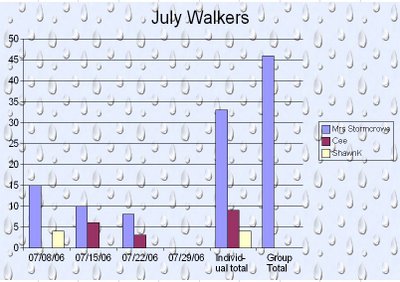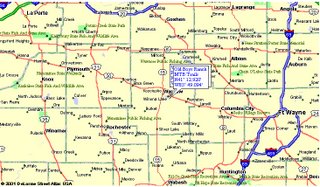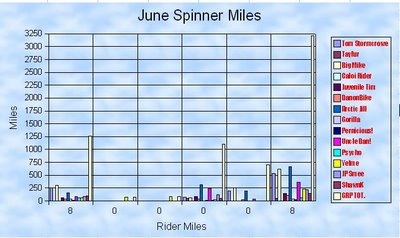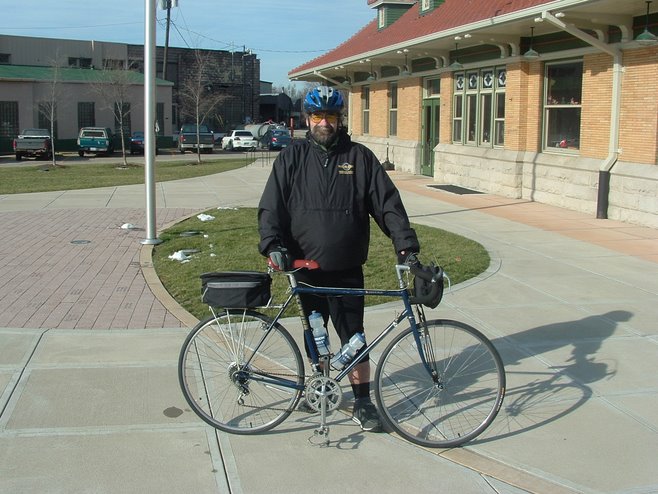Nutrition
The following is based on my experience and is not to be construed as medical advice.
One of the issues that faces a cyclist after bariatric surgery is the dreaded "Dumping Syndrome". Essentially, this is a result of a basic inability to absorb certain nutrients. What happens then is a process called osmosis where fluid is drawn into the intestinal tract by a greater concentrate of particulate( Food), and that horrible "D" word occurs. That's right, Diarrhea! Also, chills, nausea, rapid heart rate and even heart palpitations can occur!
Early on, when you have had the Roux -N Y procedure, the first three feet of small intestine as well as a signifigant portion of the stomach are bypassed. You lose most of the receptor sites for sugars and carbohydrates as a result, which forces an intentional malabsorption condition for the purposes of weight loss. Among the beneficial side effects of the procedure are an immediate abatement of Type II Diabetes symptoms and often an immediate reduction in blood pressure as well.
For the long distance cyclist, this can present unique problems. Malabsorption can trigger issues like low blood sugar, muscle mass cannibalization, and issues with anemia. As time goes on, the body can replace a number of the sites for sugars and carbohydrates, but initially, you are solely reliant on the lipid/protein metabolism. This means you have to get your energy from fat and protein. Consequently, you have to supplement your protein intake to prevent cannibalization of your muscles. When you are supplementing your protein intake, you also need to keep up the fluid intake as well. When you are consuming a high protein, very low carb diet, your kidneys get a workout removing the end products from the protein metabolism out of the blood stream to the bladder and out of the body. This process is why the urine gets so dark, by the way, is those end products in a high concentration. The high level of fluid intake protects the kidneys by diluting this as much as possible. You need a minimum of 64 fluid oz water a day.
About a year post surgical or a bit less, you start to be able to absorb some of the sugars again. I've had my best results with Maltodextrin or brown rice syrup, by the way as far as avoiding Gastrointestinal distress. A Glycemically moderate food like Clif Bars, for example, can be consumed with no real problems about 8 months out. This is my experience again, and not specific dietary or medical advice, people! Twin Labs makes a drink called Ultra Fuel, that I've had pretty good results with. Other malabsorption issues are B Complex vitamins.
You'll need to supplement the following as well as a good chewable multivitamin:
- * Vitamin B12
- * Vitamin B6
- * Vitamin B1
- * Calcium
- * Vitamin C
Post ride, you can drink some chocolate milk, believe it or not! Chocolate milk, as long as you don't have lactose intolerance issues makes a wonderful recovery drink and contains protein as well as calcium and Galactose, a complex sugar that is easily metabolizable.
Look here for my article on the subject.In other news:
Bariatric Nursing News
Business Wire Release
NEW ROCHELLE, N.Y.--(BUSINESS WIRE)--July 27, 2006--Professional nursing care is critical to preventing patient complications after surgery, according to Bariatric Nursing and Surgical Patient Care, a new peer-reviewed journal published by Mary Ann Liebert, Inc. (www.liebertpub.com). A free sample issue of the Journal is available online at www.liebertpub.com/bar
It is the nurse, at the patient's bedside, who is aware of small health status changes that are indicative of future problems, according to editor-in-chief Lisa Rowen, RN, DNSc, Director of Nursing, Department of Surgery, The Johns Hopkins Hospital and Assistant Professor, The Johns Hopkins University School of Nursing. "Bariatric surgery patients are best served by nurses who are trained to immediately recognize the signs and symptoms of complications from this type of surgery," says Dr. Rowen. "Since the bariatric patient frequently has a compromised circulatory, respiratory, and nutritional status prior to surgery, the nurse's ability to analyze post-operatively becomes that much more important. Bariatric surgery nurses require a specialized knowledge base to perform physical and psychosocial assessments. They also are patient advocates, utilizing excellent communication skills to function as the patient care manager on the health care team."
Bariatric surgery is a burgeoning field of specialty for health care professionals. Bariatric Nursing and Surgical Patient Care, the official Journal of the National Association of Bariatric Nurses (www.bariatricnurses.org), features comprehensive coverage on optimizing health outcomes; occupational hazards for bariatric healthcare professionals; transfer, mobility, and patient safety issues; pre-op, peri-op, and post-op standards of practice; pre-surgical work-up and consultation; dietary modification and counseling; malabsorption and malnutrition; lifestyle modification and psychological support; patient compliance; anticipating and managing surgical complications; wound care and infections; care of the patient with special needs; ethical issues and cultural sensitivities; and much more.
Mary Ann Liebert, Inc. is a privately held, fully integrated media company known for establishing authoritative peer-reviewed journals in many promising areas of science and biomedical research, including Obesity Management, Journal of Laparoendoscopic & Advanced Surgical Techniques, and Diabetes Technology and Therapeutics. Its biotechnology trade magazine, Genetic Engineering News (GEN), was the first in its field and is today the industry's most widely read publication worldwide. A complete list of the firm's 60 journals, books, and newsmagazines is available at www.liebertpub.com
Here's an interview in MP3 format from Floyd Landis in the above link!













